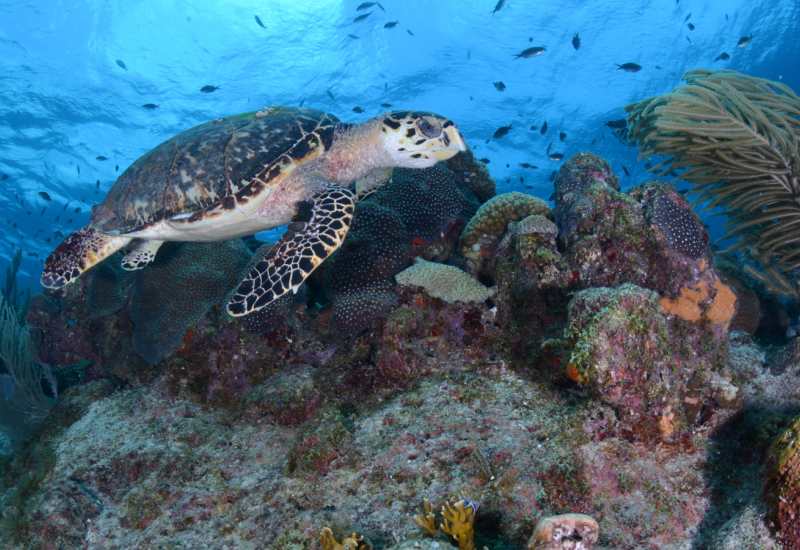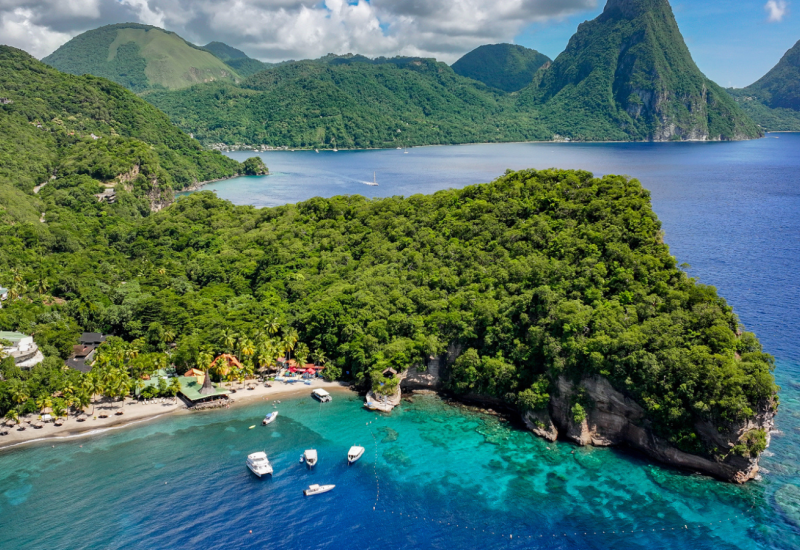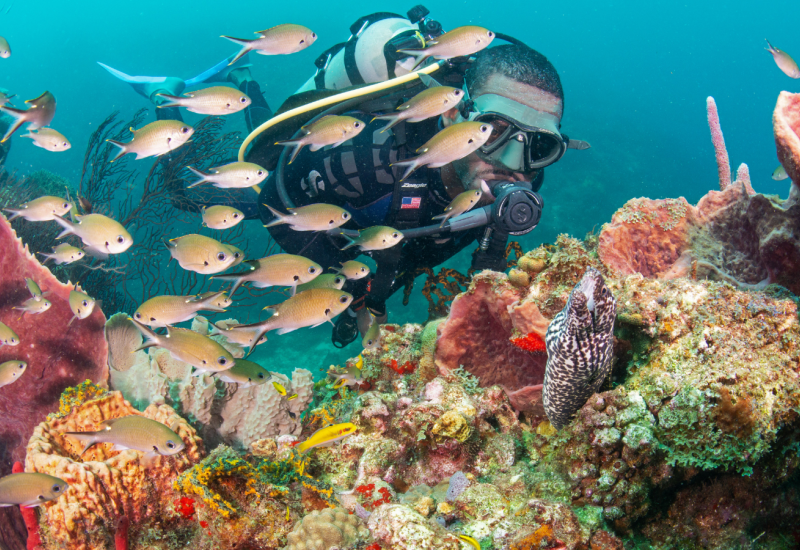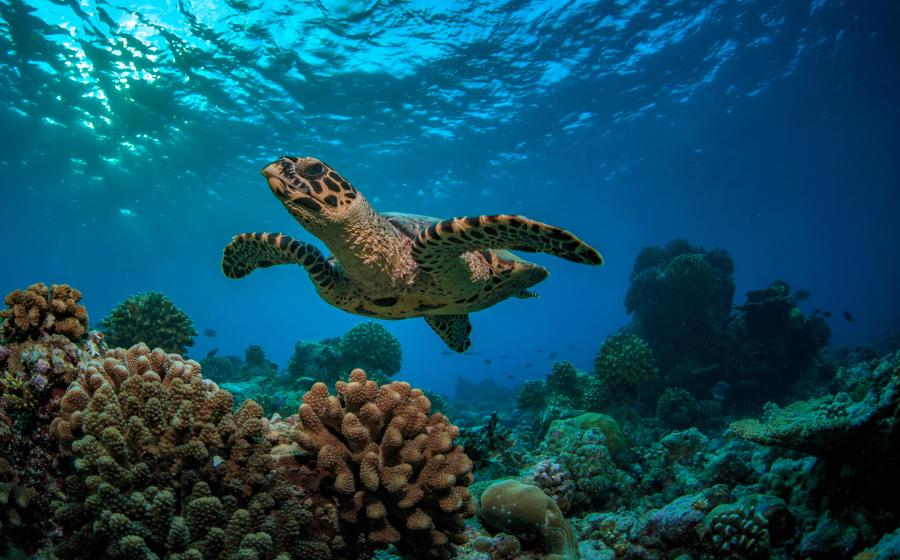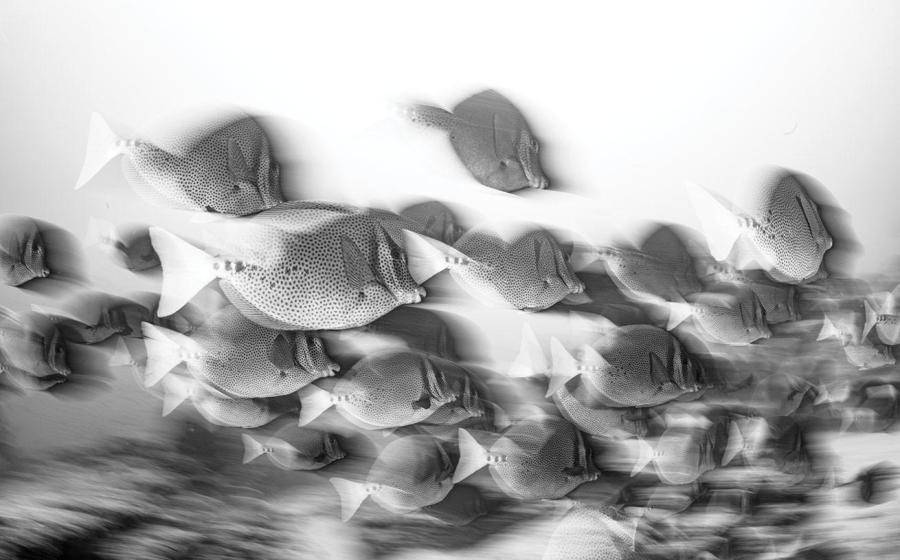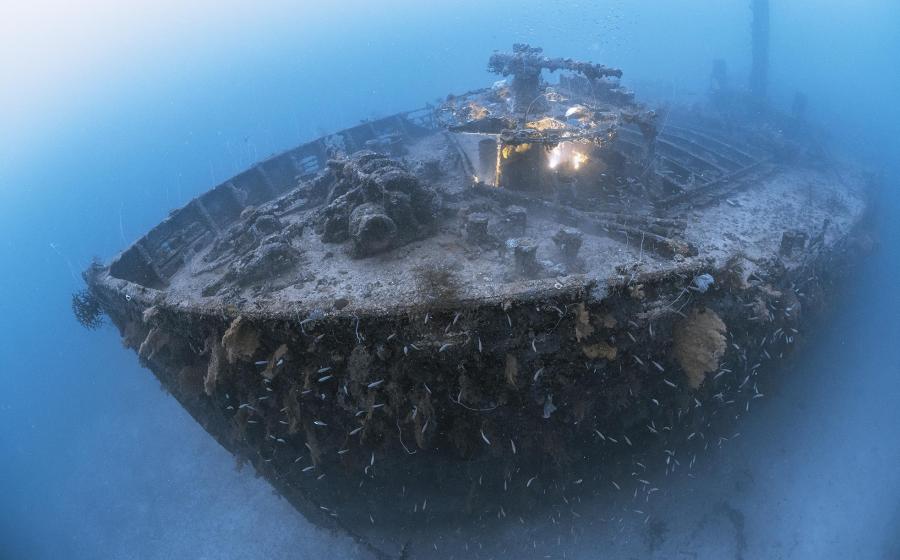Ask DAN: Can Diving with Nitrox Prevent Fatigue?
Nitrox is a great tool for divers to have on hand — it can extend bottom times, increase conservatism and make possible dives that would otherwise require planned decompression or a rebreather. A catch-all term for breathing-gas mixtures with higher oxygen content — and in turn, lower nitrogen content — than surface air, nitrox has become commonplace in all but the most remote dive destinations.
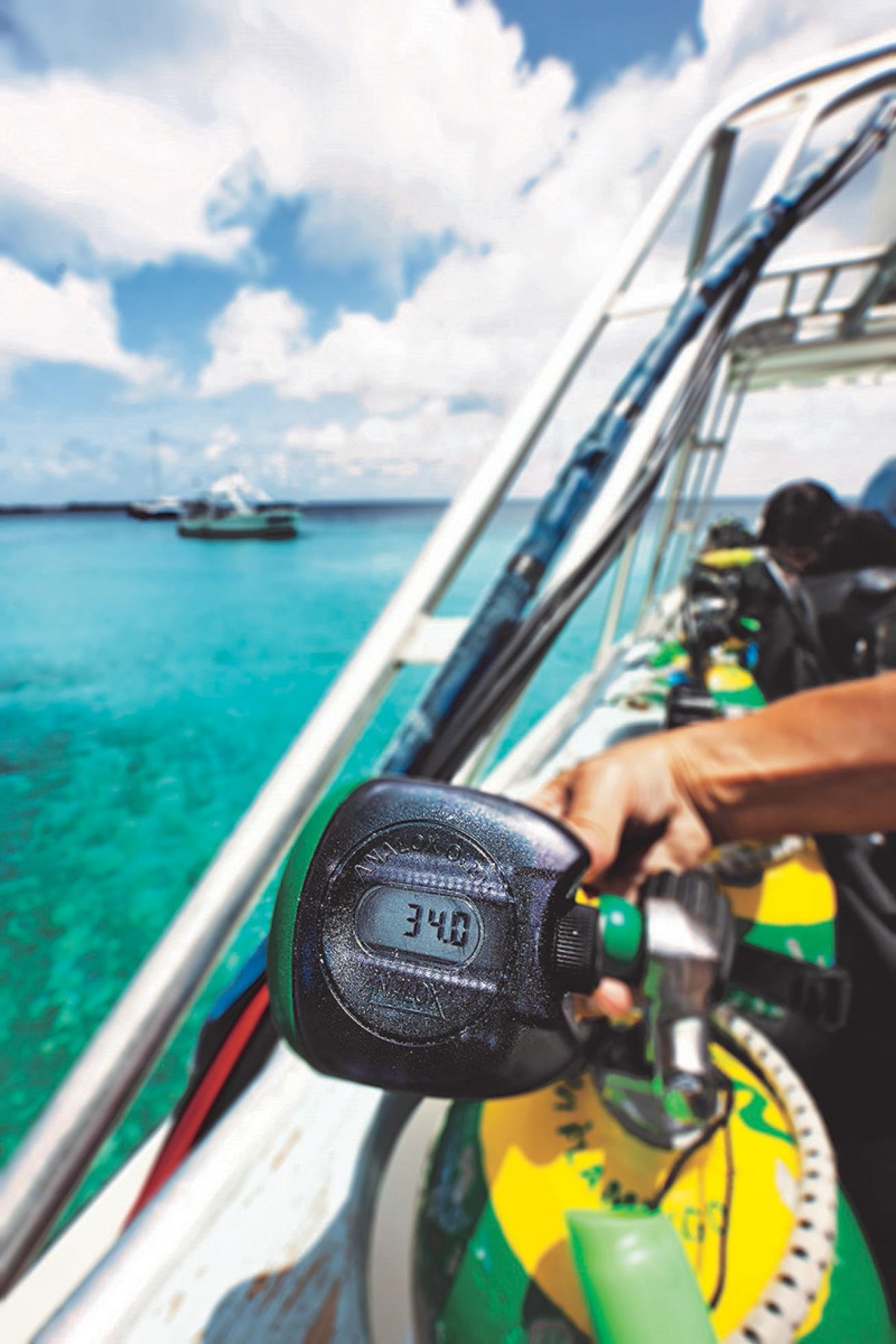
Stephen FrinkNitrox divers learn to analyze their gas mix.
After more than 25 years of recreational nitrox use, divers and researchers have gained operational experience and significant research-based knowledge of the various nitrox mixes and their effects on dive profiles. The advantages of nitrox are well-researched and documented, and can be learned quickly by eager divers. In its nearly three decades of use, however, several misconceptions have surrounded the use of nitrox, most notably that divers report feeling less tired after a dive on nitrox than they would on air. These reports come from divers of all experience levels, and more than one diver has started a heated debate over the topic in postdive conversation.
While the reports of this phenomenon are widespread and often fiercely defended, our best understanding is that nitrox can prevent fatigue about as well as a manatee can pass for a mermaid: There might appear to be some similarity on a foggy day, but a close look reveals little resemblance to the truth.
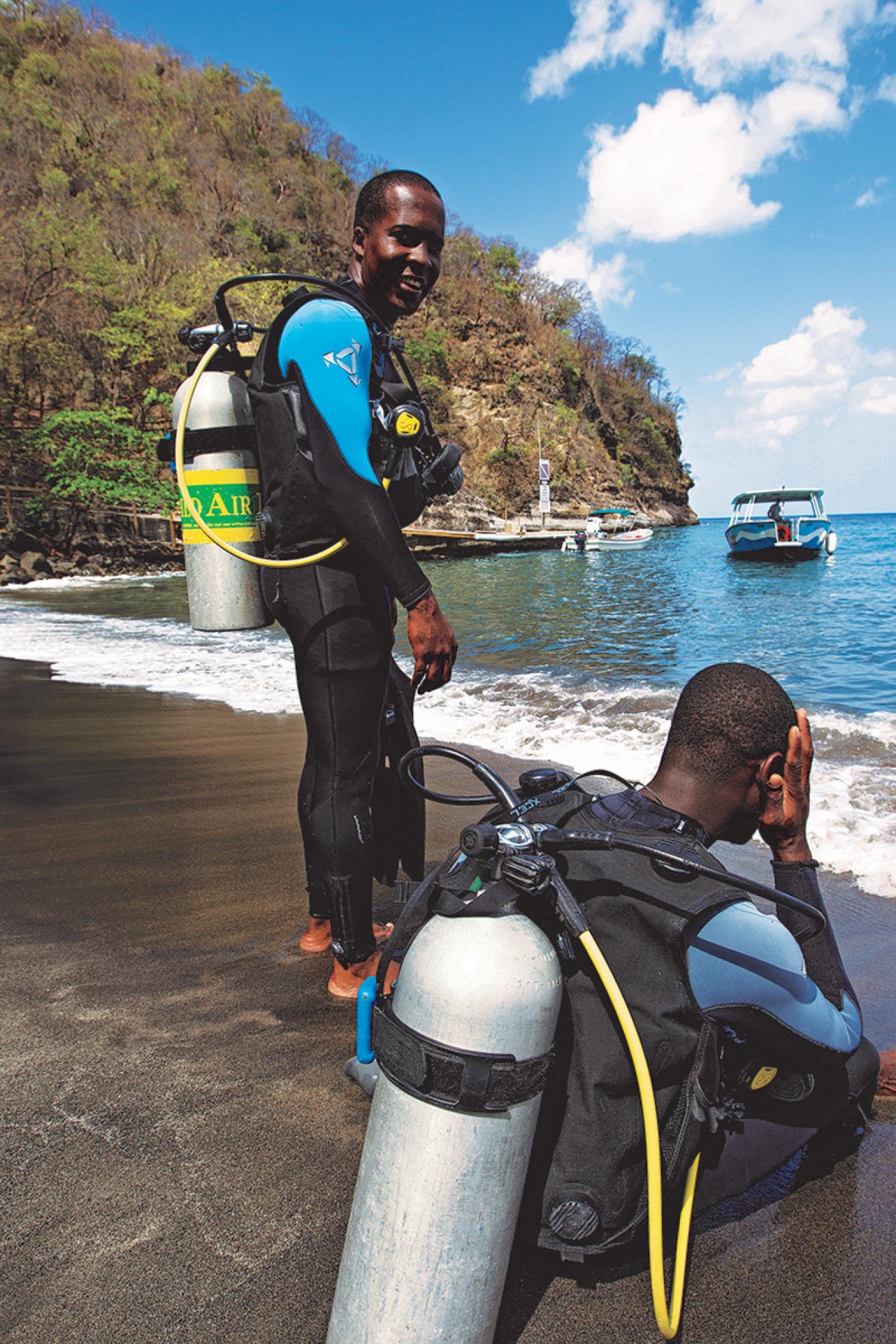
Stephen FrinkNitrox divers get ready for a shore dive.
WHAT IS FATIGUE?
Understanding the relationship between nitrox and fatigue presupposes a basic understanding of fatigue. Physical tiredness is a physiological consequence of exercise. It’s best understood as a subjective feeling of temporarily reduced capacity for work and is frequently associated with lethargy and decreased cognitive performance. It is not an uncommon symptom following an inconsequential dive with no other symptoms of decompression sickness, but it is also a frequently reported symptom of DCS.
Despite divers’ frequent reports to the contrary, objective studies have not found a reliable difference in either physical fatigue or cognitive performance following dives on air compared to identical dives by the same subjects on nitrox.
Given an identical dive, it is generally understood that the higher partial pressure of oxygen in nitrox — and the lower partial pressure of inert gases — will result in less decompression stress. It’s easy to make the logical leap to connect fatigue to minor decompression stress at this point, but it’s important to recognize that a higher partial pressure of oxygen also causes a different type of stress: oxidative stress. Several studies suggest the oxidative stress generated by high partial pressures of oxygen can cause mild endothelial dysfunction, which might actually lead to feelings of fatigue.
This challenges the nitrox-as-fatigue-buster myth. This oxidative stress is particularly apparent in hyperbaric treatments, where long exposures to high partial pressures of oxygen result in frequent reports of post-treatment fatigue. Is it likely that nitrox will make you more fatigued in the water? In short — no, but it’s a significant step away from proof that nitrox can combat postdive fatigue.
SO WHAT CAUSES FATIGUE AFTER A DIVE?
Diving is work, no matter how much fun it is. Thermal stress, decompression stress, exercise, prolonged oxygen exposure, anxiety and seasickness can all contribute to leaving you exhausted after a relaxing dive. Being immersed in water even without descending pushes about two-thirds of a liter of blood to the heart during the resting phase of the cardiac cycle and starts a cyclical reaction that releases hormones, eliminates fluids in the body and shunts warm blood to the core. This phenomenon resolves once a diver leaves the water, and the decline in central blood volume and pressure can cause significant fatigue on top of all the other factors in play.
WHAT ABOUT DCS?
Subclinical DCS — minor or difficult-to-distinguish symptoms of DCS — throw a wrench in what would otherwise be fairly straightforward myth-busting. We have no definitive reason to believe that nitrox can reduce diver fatigue, but unusual fatigue in excess of expected levels or feeling sick after a dive can indicate a more serious issue. Even if you feel less tired after a dive on nitrox, keep in mind that fatigue alone can be a symptom of DCS, and significant fatigue might indicate a need to seek medical evaluation. If you or a buddy feel markedly tired, significantly ill or even just a little funny after a dive, make sure to ignore the nitrox-versus-air debate and seek professional help — your choice of diving gas might make a great conversation starter, but you shouldn’t expect to be more fatigued just because you decide to do an otherwise conservative dive on air.
For more information on nitrox and diving, visit dan.org/health.


